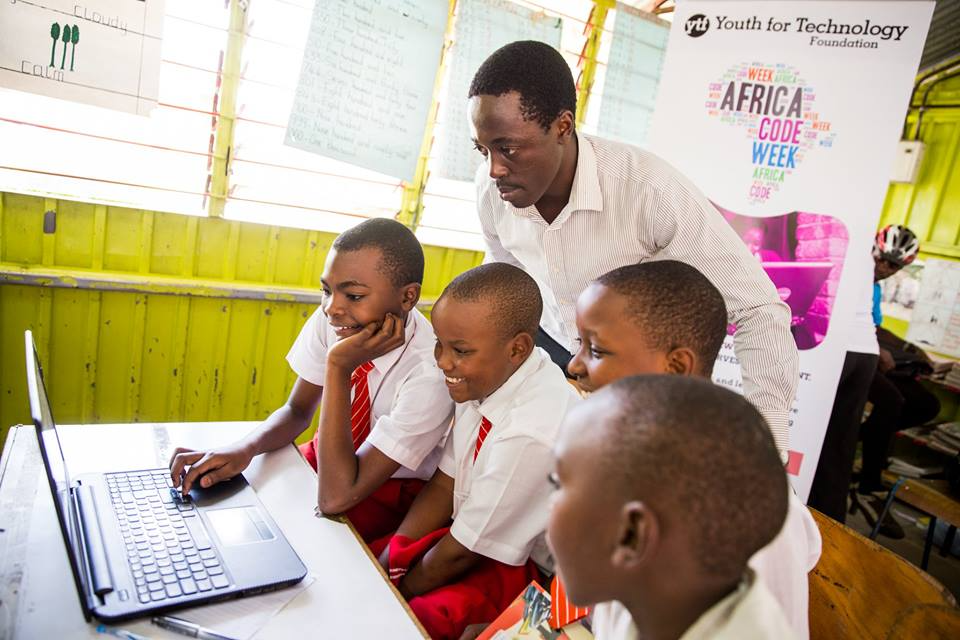As Africa navigates the complexities of digital transformation, Sweden’s experience offers valuable lessons. From the benefits of technology in education to the importance of balancing screen time with traditional learning methods, Sweden’s journey provides a roadmap for African nations to harness the power of technology while mitigating its negative consequences.
The digital revolution has transformed how people learn, consume information, and engage with media. Across the world, societies have embraced technological advancements, but not without significant positive and negative shifts.
Join our WhatsApp ChannelSweden, known for its progressive technological approach, provides an insightful case study on how education and media have evolved in response to digitalisation. However, with these advancements come concerns: the erosion of traditional reading habits, distractions from online content, and the impact of artificial intelligence on originality and creativity.
As developing nations adapt to these global shifts, they face additional challenges, including the spread of misinformation, a growing culture of digital irresponsibility, and the weakening of traditional values. With Sweden’s experience, and the lessons it offers, can developing countries take steps in harnessing technology while mitigating its negative consequences?
Impact of tech on education and media experience/exposure
Technology has revolutionised education and media, enhancing access to information and enabling personalised learning through adaptive platforms. Interactive tools boost student engagement, while online platforms facilitate collaboration, fostering essential 21st-century skills like digital literacy and critical thinking. However, challenges include the digital divide, where disparities in access create inequalities, and concerns over excessive screen time affecting well-being. The proliferation of misinformation also demands media literacy to navigate the digital landscape responsibly.
READ ALSO: The Political Economy Of Artificial Intelligence
Sweden’s experience represented this shift
Sweden’s journey with technology embodies several global shifts in the realms of digitalisation and economic evolution. Initially, Sweden enthusiastically embraced digital innovation, becoming a leader in ICT adoption, mirroring a worldwide trend where countries prioritised digital transformation. Driven by the promise of enhanced learning and future-readiness, the country replaced textbooks with computers in 2009.
Reports have shown that Sweden saw declines in reading comprehension since 2000, with low performers increasing from 13% to 18% by 2018. Daily reading among 15-year-old people dropped from 21% to 9% between 2012 and 2018. Instructional time for reading in Grade 4 decreased, and new children’s book publications fell by 17% in 2023. E-book usage remains low among adults.
A decade and a half later, a significant course correction occurred as the declining literacy rates prompted a substantial investment to reintroduce traditional textbooks. This realisation reflects a global concern about the potential downsides of excessive screen time and the importance of foundational skills.
Beyond education, Sweden’s commitment to leveraging technologies like AI and IoT for societal challenges aligns with a global movement towards ethical and sustainable progress. The potential of digitalisation to unlock economic value, the transition towards a service-based economy driven by ICT, and the emphasis on collaborative ecosystems are all trends mirrored worldwide.
The shift from traditional reading to digital formats has led to several negative impacts, particularly concerning comprehension and focus. Research indicates that reading on screens often results in lower comprehension levels, especially among younger students. Studies have shown that digital reading is associated with increased mind wandering, leading to diminished focus and retention of information compared to reading print books. This decline in comprehension can be attributed to the distractions inherent in digital environments, where notifications and the temptation to switch to social media or games can easily divert attention.
Also, the transition to online reading has contributed to a loss of historical context and depth in understanding texts. Many students now approach reading with a utilitarian mindset, focusing solely on extracting information rather than engaging deeply with the material.

The Technological shift not only affects academic performance but diminishes the overall reading culture, as students increasingly prefer quick online content over in-depth literature. As a result, the educational landscape faces challenges in fostering dedicated reading habits and ensuring that students develop the critical thinking skills necessary for navigating both digital and print media effectively.
How Sweden has been realistic to change
Sweden realistically adapts to change by reassessing policies based on outcomes. Reversing initial digitalisation, they reinvested in textbooks due to literacy concerns. Simultaneously, they integrated digital skills into the curriculum, balancing screen time with traditional learning methods.
Sweden limits phone use in schools, informed by research on the negative impacts of excessive screen time, and prioritises digital literacy to understand technology’s societal impact. Supporting teacher development and promoting ICT for inclusivity, Sweden exemplifies a pragmatic approach to the evolving digital landscape, ensuring balanced and effective education.
Another profound shift: The impact of AI on originality and creativity
The rise of artificial intelligence (AI) presents a profound shift in how originality and creativity are perceived. AI’s ability to generate content; whether art, music, or writing, by analysing vast datasets raises questions about what constitutes true originality. While AI can produce technically impressive outputs, it often lacks the emotional depth and personal experiences that define human creativity. This growing reliance on AI risks fostering complacency, as the convenience of AI-generated ideas may discourage individuals from pursuing fresh, original concepts.
As AI tools become more integrated into creative industries, there’s a concern that algorithm-driven outputs could overshadow the unique insights and perspectives of human creators. However, collaboration between humans and AI also offers opportunities. By handling repetitive or data-intensive tasks, AI can augment human creativity, enabling innovative results. Yet, the challenge lies in ensuring that technology complements rather than replaces human ingenuity, preserving the essence of creativity in an increasingly digital world.
The case of developing nations
If technological shifts can have significant consequences for a developed nation like Sweden, which has the resources to adapt, the potential impacts on developing nations are even more pronounced. Unlike countries that produce technology and can implement course corrections; such as Sweden’s decision to reintroduce textbooks; developing nations cannot often mitigate the negative effects of unchecked technological adoption.
This has exacerbated existing inequalities in access to education and economic opportunities. The dominance of foreign online content has continued to threaten local traditions and identities, while the spread of misinformation can lead to social instability.
As highlighted by the UNCTAD Technology and Innovation Report 2023, developing countries risk missing critical opportunities if they do not prepare to equitably adapt frontier technologies. Therefore, addressing these challenges proactively is essential for developing nations to harness technology’s benefits while preserving their cultural heritage and ensuring a balanced, sustainable future.
No doubt, Western-programmed online technologies like AI, originating from nations like the United States and Sweden, usually unleash foreign trends, culture and opinions potentially overshadowing the unique beauties, thoughts, and cultures of developing nations such as Africa, Nepal, Botswana and Bangladesh, perpetuating a historical trend of pop culture dominance. Without proactive measures, misguided freedom online can lead to cyberbullying, the spread of hate speech, and a weakening of community bonds.
To counter these threats, developing countries must focus on a multifaceted approach that combines education, regulation, and cultural preservation. Integrating digital literacy into curricula empowers citizens to critically evaluate online content, identify misinformation, and understand the ethical implications of their online actions. Robust legal and regulatory frameworks are needed to curb digital irresponsibility, address cyberbullying and hate speech, and ensure accountability for online actions. Fostering Media and Information Literacy (MIL) will equip individuals to access information safely, verify sources, and understand algorithms.
Simultaneously, promoting traditional values and cultural awareness provides a counterbalance to the homogenising effects of the internet. Therefore, investing in local research and innovation will allow developing countries to create technology that aligns with their needs and values. By taking these steps, developing nations can harness the benefits of technology while mitigating its negative consequences by preserving their cultural identity and ensuring a more balanced and responsible digital future.
Dr Mbamalu, a Jefferson Fellow, Member of the Nigerian Guild of Editors (NGE) and Communications Consultant, is the publisher of Prime Business Africa.
Follow him on X: @marcelmbamalu
Dr. Marcel Mbamalu is a communication scholar, journalist and entrepreneur. He holds a Ph.D in Mass Communication from the University of Nigeria, Nsukka and is the Chief Executive Officer Newstide Publications, the publishers of Prime Business Africa.
A seasoned journalist, he horned his journalism skills at The Guardian Newspaper, rising to the position of News Editor at the flagship of the Nigerian press. He has garnered multidisciplinary experience in marketing communication, public relations and media research, helping clients to deliver bespoke campaigns within Nigeria and across Africa.
He has built an expansive network in the media and has served as a media trainer for World Health Organisation (WHO) at various times in Northeast Nigeria. He has attended numerous media trainings, including the Bloomberg Financial Journalism Training and Reuters/AfDB training on Effective Coverage of Infrastructural Development of Africa.
A versatile media expert, he won the Jefferson Fellowship in 2023 as the sole Africa representative on the program. Dr Mbamalu was part of a global media team that covered the 2020 United State’s Presidential election. As Africa's sole representative in the 2023 Jefferson Fellowships, Dr Mbamalu was selected to tour the United States and Asia (Japan and Hong Kong) as part of a 12-man global team of journalists on a travel grant to report on inclusion, income gaps and migration issues between the US and Asia.
















![Trump, Zelenskyy Discuss Peace Plans During Pope Francis’ Funeral In Rome [VIDEO]](https://www.primebusiness.africa/wp-content/uploads/2025/04/Trump-and-Zelenksy-meet-at-Pope-Francis-Burial-150x150.jpeg)


